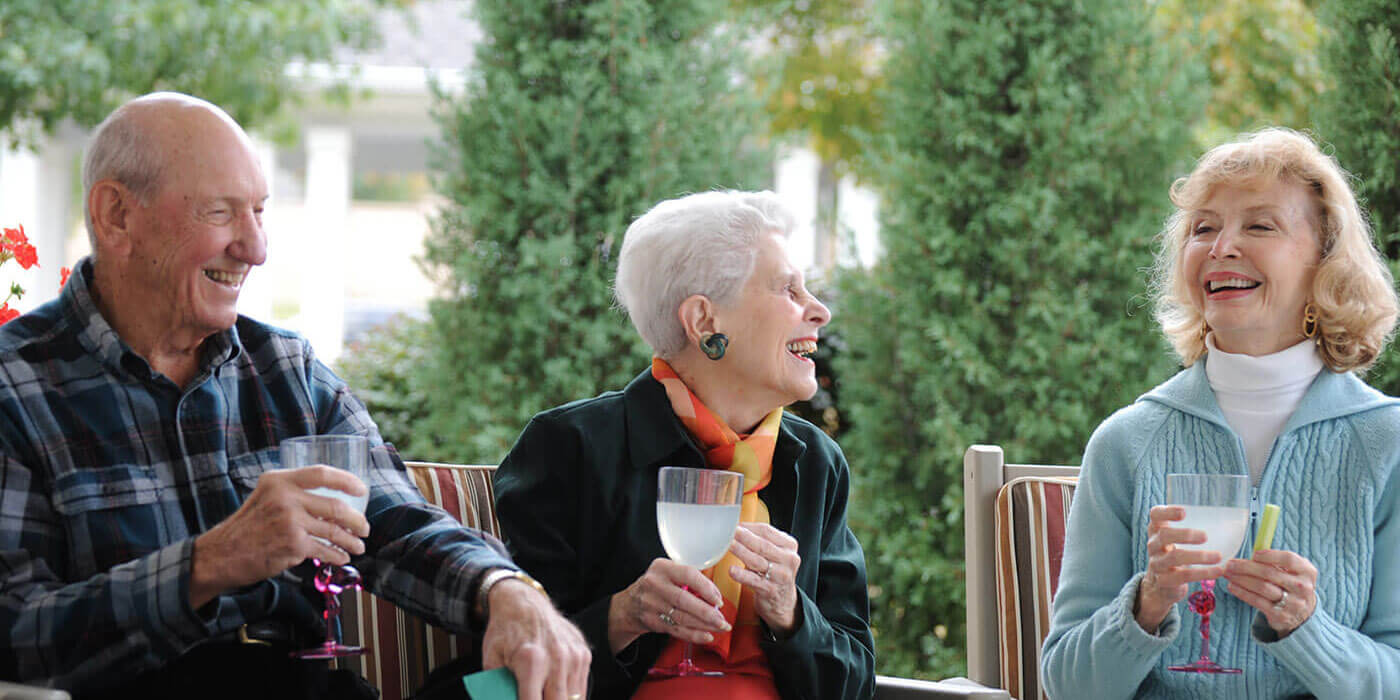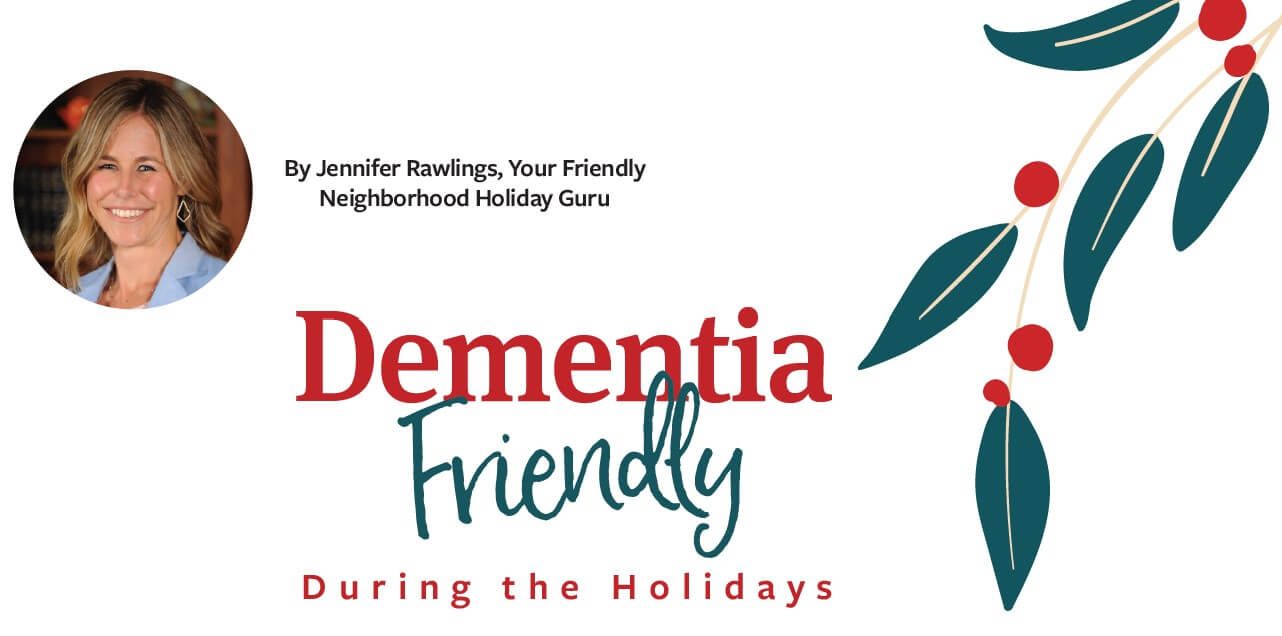by Jennifer Rawlings, VP of Wellness
The hustle and bustle of the holiday season is upon us, and you may be wondering what is it going to be like this year? Will it be “normal?” Will it be different? This is probably true if your family has a loved one living with dementia. One thing is certain, the holidays will still come, and they will still be celebrated.
For many families who have someone living with dementia it can add another layer of anxiety. Within the United States, there are at least 5 million people currently living with age related dementias. To put this into perspective, it’s estimated that one out of every six women and one out of every 10 men, living past the age of 55 will develop dementia. So, the odds are that you know someone living with dementia.
At the end of the day most of us do our very best to make sure all our family and guests are happy and are having an enjoyable time. Here are some helpful tips to welcome loved ones and friends living with dementia this holiday season.
Be Flexible – Go into the holiday season knowing it might look different than you think – be flexible with your plans. Changes may be necessary, have a “Plan B”. If your loved one becomes agitated by large gatherings, have a quiet place you can take your loved one to rest. Maybe have family come a few at a time to talk with them instead of all at once. Give them some space if necessary.
Respect Routine – For some living with dementia the holiday season can be disruptive to their daily routine causing them to be uncomfortable or even act out. Routine is highly important for managing symptoms of dementia and any changes to their daily schedule, seeing unfamiliar faces or being in large groups could upset someone with dementia.
Preparing Family – Talk to your family and guests prior to the gathering. Let others know the ways you have found to have successful interactions.
Other things to discuss might be:
• The stage of dementia and what symptoms they might see.
• The daily routine and why it’s important.
• Being patient during conversations, without correcting or questioning.
• Don’t be offended if he/she forgets you, live in the moment.
• Don’t say “don’t you remember” or “I’ve already told you that.”
If your normal family get-together now looks different, that is ok. There are still ways to enjoy this special time of the year. Just keep it simple. And most important – remember to take time for yourself. The best caregiver is a caregiver who takes care of themselves as well.
Dementia takes different forms for everyone and people living with dementia can thrive with the support of their family and community. Whether they are able to express it or not they are thankful for you as I’m sure you are thankful for them.
Stats from Dementia facts & figures | Alzheimer’s Disease International (ADI) (alzint.org)

